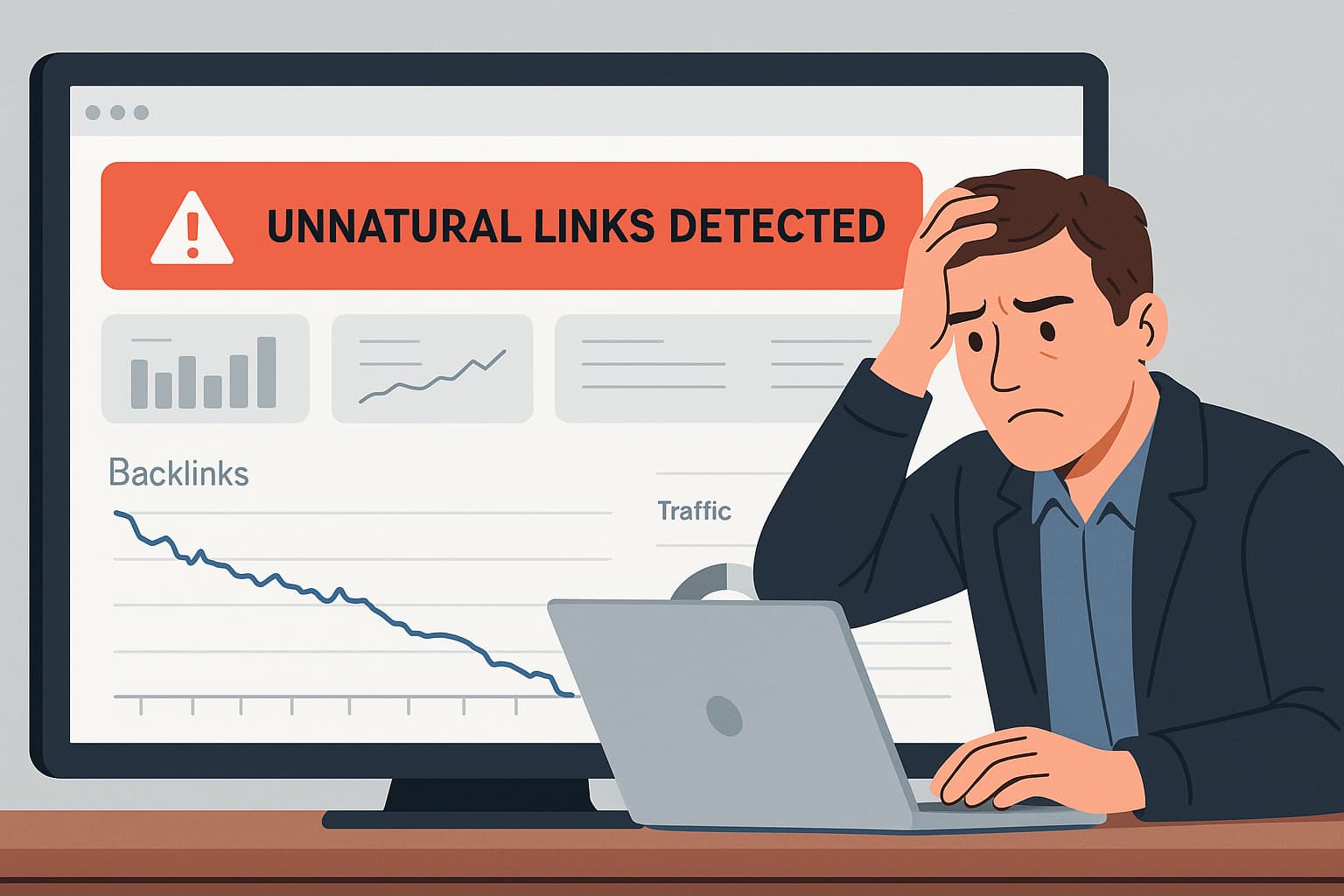Link building is a crucial part of SEO, but not all links are beneficial. Poor-quality, spammy, or toxic backlinks can harm your website’s rankings instead of improving them. Regular link-building audits help identify these issues and ensure your backlink profile remains strong.
The question is: How often should you conduct a link-building audit? The answer depends on several factors, including your website’s size, industry competition, and past SEO performance.
Why Link Building Audits Matter
Search engines like Google evaluate backlinks to determine a website’s authority and relevance. A strong backlink profile can boost rankings, while toxic or unnatural links can trigger penalties. A link-building audit helps:
- Identify harmful or spammy backlinks;
- Recover lost high-quality links;
- Find new link-building opportunities;
- Compare your backlinks with competitors’;
- Remove or disavow toxic links.
Without regular audits, you risk accumulating bad links that hurt your SEO efforts.
What Affects Link Audit Frequency
How often you should run a link audit depends on your site’s size, purpose, and SEO strategy. Just like a small shop and a large chain need different management, audit schedules should reflect your site’s scale and activity.
1. Website Size and Activity
Larger, active websites should audit their backlinks every 3–6 months. If your site regularly adds content or builds links, frequent checkups help catch bad links before they hurt your rankings.
Smaller, static sites—like a local business with few updates—can stick to annual audits. Since they don’t gain many new links, the risk of backlink issues is lower. Match your audit schedule to how active your site really is.
2. Industry Competition
The frequency of your backlink audits should match how competitive your industry is. In fast-moving sectors like finance, healthcare, and legal services, you’ll want to check your backlinks every 2-4 months. Why? Because in these industries:
- Competitors are always building new links.
- Google frequently adjusts its algorithms.
- The risk of negative SEO attacks is higher.
- Aggressive link-building can sometimes backfire.
Regular audits help you spot problems early—whether it’s a competitor’s shady tactics or your own links that might be pushing boundaries.
In cutthroat industries, competitors might engage in negative SEO tactics, or your own aggressive link-building could accidentally cross into gray areas. More frequent audits help you stay ahead of these challenges. Less competitive niches might get by with less frequent checks, but should still maintain at least annual audits.
3. Past Penalties or SEO Issues
If your site has faced Google penalties (manual or algorithmic), frequent audits (every 2 to 3 months) help prevent recurring problems. Websites that have previously been penalized are often under closer scrutiny from search engines, making ongoing monitoring essential.
A history of penalties suggests vulnerabilities in your link profile that need regular attention until you’ve established a long period of clean audits. Think of this like probation – you’ll want to check more frequently until you’ve rebuilt trust with search engines.
4. Recent SEO Campaigns
After running a major link-building campaign—be it through guest posting, PR placements, or other outreach efforts—it’s important to schedule a link audit within the next month or two. This review helps ensure that all newly acquired links are legitimate and aligned with quality standards.
It’s particularly important if you’ve partnered with a new agency or tested out a new link-building method. A timely audit gives you the chance to catch and fix any harmful or suspicious links before they start affecting your rankings.
5. Major Algorithm Updates
Google doesn’t stand still — their algorithm updates regularly reshuffle the rules for what makes a valuable backlink. While minor tweaks might not affect you, the big updates (like the industry-shaking Penguin update) can completely change the game overnight.
Here’s what savvy website owners do. When Google announces one of their big core changes (of which they release many each year), they immediately schedule a new link audit. This isn’t simply busywork; it’s how you maintain your backlinks up to date with Google’s current requirements and protect your rankings. A little proactive work today can spare you from unpleasant shocks in the future.
Recommended Audit Schedule

To maintain a healthy backlink profile, follow these audit schedule recommendations based on your website’s specific circumstances:
For New Websites (Under 6 Months Old)
New sites should audit backlinks every three months during their early growth. Since they’re actively building their first links, regular checks ensure quality and prevent harmful backlinks from piling up before the site gains authority.
For Established Sites in Low-Competition Niches
Mature sites in less competitive niches usually only need audits every 6–12 months. With stable, organic link profiles and minimal aggressive link-building, less frequent checks are fine as long as rankings remain steady.
For High-Competition Industries
In competitive fields like finance, healthcare, and law, backlinks should be audited every 2–4 months. These industries change quickly, with constant link-building by competitors and evolving search engine rules. Frequent audits help identify and fix link issues before rankings slip.
After Running Link-Building Campaigns
Audit your backlinks 1–2 months after a campaign to ensure the new links meet Google’s quality standards. This review helps you catch any unwanted or low-quality links early, reducing the risk of SEO penalties.
Following Google Penalties
If your site was penalized by Google, run audits every 2–3 months during recovery. Regular checks help avoid repeated violations and show ongoing efforts to meet guidelines until your backlink profile is stable and clean.
After Major Google Algorithm Updates
When Google rolls out a major algorithm update, it’s time to check your backlinks immediately. These changes often shift how search engines assess links—what worked yesterday might not work today. A quick audit helps you:
- Spot now-risky links that could hurt your rankings;
- Adjust your strategy to align with new ranking factors;
- Protect (or boost) your search visibility before competitors adapt.
Acting quickly gives you a practical advantage when search rules change.
What a Good Link Audit Includes
A thorough link building audit should cover:
- Backlink Scan – Finds all links to your site.
- Link Quality Check – Assesses authority, relevance, and risk.
- Lost Link Recovery – Restores valuable broken or missing links.
- Competitor Analysis – Reveals backlink gaps vs. competitors.
- Toxic Link Removal – Flags and disavows harmful links.
- Recommendations – Suggests next steps for link building.
For businesses looking for a reliable audit, 3XE Digital provides a detailed link-building audit service. They analyze backlinks, detect toxic links, recover lost ones, and offer clear strategies to improve SEO performance. Their reports help businesses make informed decisions without unnecessary risks.
Signs You Need an Immediate Audit
Don’t wait for your next scheduled audit if you notice any of these warning signs. That sudden, heart-dropping moment when you see your rankings tank across multiple keywords? That’s your first clue. If your content and technical setup haven’t changed, those disappearing rankings often trace back to toxic backlinks poisoning your profile.
Similarly, when your organic traffic takes an unexplained nosedive – and you know it’s not just seasonal – your backlinks likely need emergency attention. Google Search Console warnings about “unnatural links” are even more serious; that’s Google directly telling you there’s a problem. And if you stumble across obviously shady links in your reports? Don’t file it away for your next quarterly review. Acting fast on these red flags can mean the difference between a quick fix and a months-long recovery from search penalties. Your site’s visibility is too valuable to gamble with — when in doubt, audit it out.
Common Mistakes When Timing Audits
If your backlink profile is weak or harmful, you may notice:
- Sudden Ranking Drops – Google may penalize spammy links.
- High Percentage of Low-DA Links – Too many links from irrelevant or weak sites.
- Overuse of Exact-Match Anchors – Unnatural anchor text distribution.
- Links from Spammy Directories & PBNs – These can trigger penalties.
- Google Search Console Warnings – Manual actions for “unnatural links.”
If these signs appear, an immediate audit is necessary.
The Role of Google Algorithm Updates
Google’s algorithm for evaluating backlinks is continually evolving, influencing your search ranks. Remember the game-changing Penguin update from 2012? It cracked down on shady link schemes, requiring websites to prioritize obtaining quality connections over pursuing big numbers of questionable ones.
The introduction of BERT and MUM took things further — now Google better understands content meaning and context, making the relevance and authority of sites linking to you more crucial than ever. Recent Helpful Content Updates double down on this, prioritizing backlinks from trustworthy industry sources.
Here’s the key takeaway: Google’s rules keep changing. That’s why savvy website owners review their backlink profiles after major algorithm updates. It’s the best way to:
- Make sure their links still meet Google’s standards.
- Catch ranking issues early.
- Keep their SEO efforts in line with what currently works.
How Regular Audits Improve SEO Strategy
Consistent link audits provide long-term advantages:
- Prevent Issues – Detect toxic backlinks before they cause ranking drops.
- Recover Authority – Eliminate damaging links to restore search visibility.
- Find Weak Spots – See where competitors have gained an edge.
- Adjust Anchors – Keep anchor text distribution natural and balanced.
- Maximize Results – Focus resources on valuable, high-impact links.
A well-maintained backlink profile strengthens SEO performance over time.
Conclusion
Regular link audits will keep your SEO strategy on track. The appropriate frequency is determined by the size of your site, the competition, and historical difficulties. Most organizations benefit from audits every three to six months, although high-risk locations may require them more frequently.
Ignoring backlink health might result in fines and worse ranks. Proactive audits contribute to maintaining a solid link profile, recovering valuable connections, and removing dangerous ones before they cause harm.



